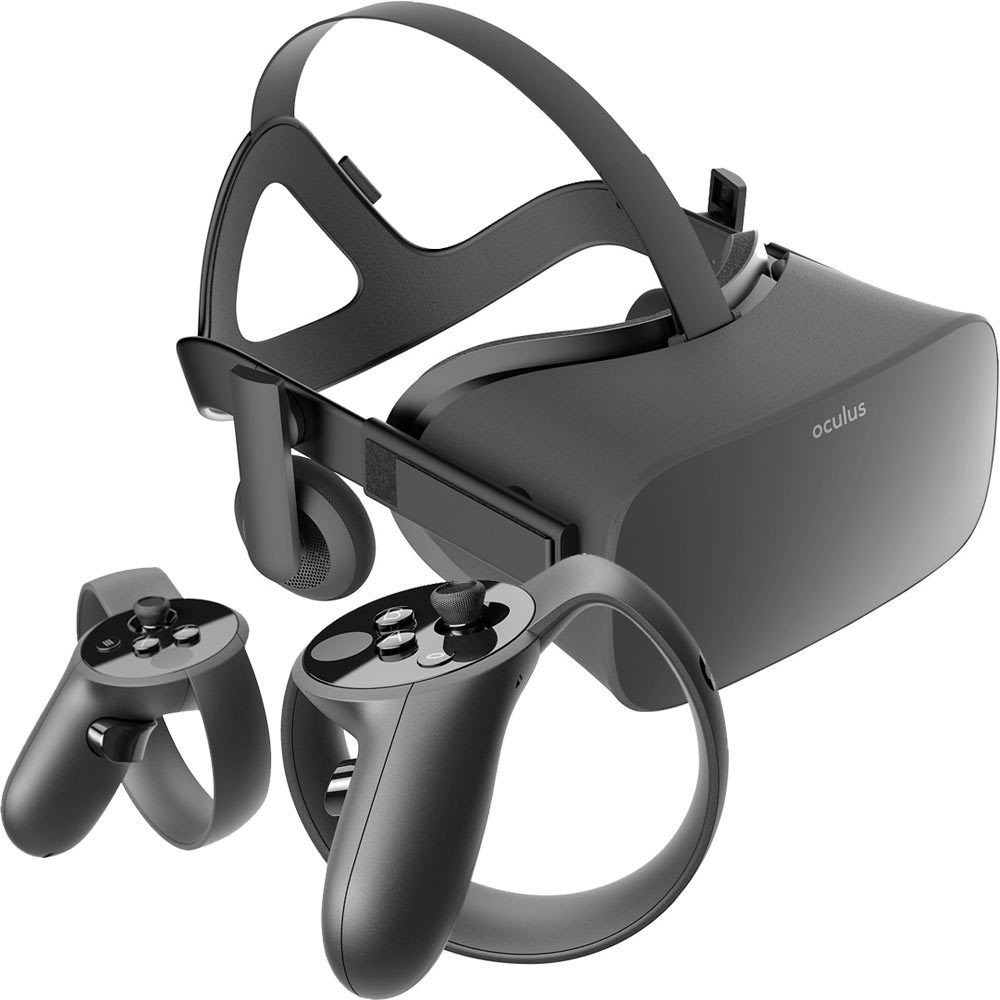Oculus To Embrace Mixed Reality Recording, Adds Support For Third Touch Controller
Oculus is still catching up to the HTC Vive platform, but it’s gaining ground. Oculus set its sights on mixed reality recording next; three-controller Touch setups are coming soon.
A Little History
Just a few short years ago, Oculus was poised as the likely leader in the VR industry. Palmer Luckey, the company’s ousted founder, helped bring VR back from the grave and kickstarted (pun intended) the burgeoning industry we see today. Oculus set the bar for high-quality VR, but HTC and Valve leap-frogged Oculus to bring a more compelling experience to market by the time the Oculus Rift launched.
Oculus spent its time refining and perfecting the fit and finish of the Rift, whereas Valve and HTC focused their energy towards creating the room-scale VR experience. HTC blindsided Oculus (and the world) in 2015 with its wand controllers and large tracking space, and the market responded in kind. HTC enjoyed higher sales volumes than Oculus in 2016, despite offering a more expensive product.
At the tail end of 2016, Oculus finally launched its Touch controllers, which puts the Rift and Vive on par in most respects. The Vive platform still offers a compelling advantage over the Oculus Rift platform, though: Shortly before the Vive hit the market, Northway Games pioneered a technique called Mixed Reality Recording that allows you capture VR gameplay and merge it with filmed footage of the player.
Mixed Reality Recording And A Third Controller
By chance, the HTC Vive platform is uniquely suited for Mixed Reality Recording. The technique involves mapping a tracked controller to an in-game camera view and attaching the controller to a real camera. To do this effectively, you would need three controllers. Northway Games is one of the earliest Vive developers, so it had the privilege of owning a Vive Pre and an early Vive dev kit, which included USB receivers for the controllers. With three controllers synced to the system, Northway Games could play Fantastic Contraption with two controllers and film with a third controller.
The mixed reality recording technology quickly caught Valve's attention, and the company took the initiative to update Steam VR to support additional controllers. Valve’s engineers added a line of code that would change the display output automatically when Steam VR detected a specific config file and a third controller.
Mixed reality recording gained popularity with developers, and many have used the technology to showcase their games. It's one of the best ways to convey what it’s like to play a VR game, but right now you have to use a Vive. Oculus isn’t about to let that opportunity pass it by forever, though. The company just announced that support for three touch controllers is just around the corner.
Get Tom's Hardware's best news and in-depth reviews, straight to your inbox.
Brendan Iribe, Oculus’s former CEO and current head of the Rift division, revealed that Oculus is in the alpha stages of testing mixed reality chroma keying with a third Touch controller. Iribe said that some developers are currently testing the feature, and we could expect to learn more about it next week.
It's exciting to see Oculus responding to mixed reality by embracing it for the Rift platform, although the concept leaves us with a few questions. The Rift package already demands many USB inputs, and adding another receiver doesn’t sound practical. A complete Rift package with Touch controllers and three sensors already demands five USB ports if you still want the Xbox One controller. If Oculus can’t connect the third controller to the existing radios in the Rift HMD, adding a third controller may not be possible. Not all motherboards support that many USB ports.
Oculus may address those concerns next week when it releases more detail about adding a third Touch controller.
Kevin Carbotte is a contributing writer for Tom's Hardware who primarily covers VR and AR hardware. He has been writing for us for more than four years.
